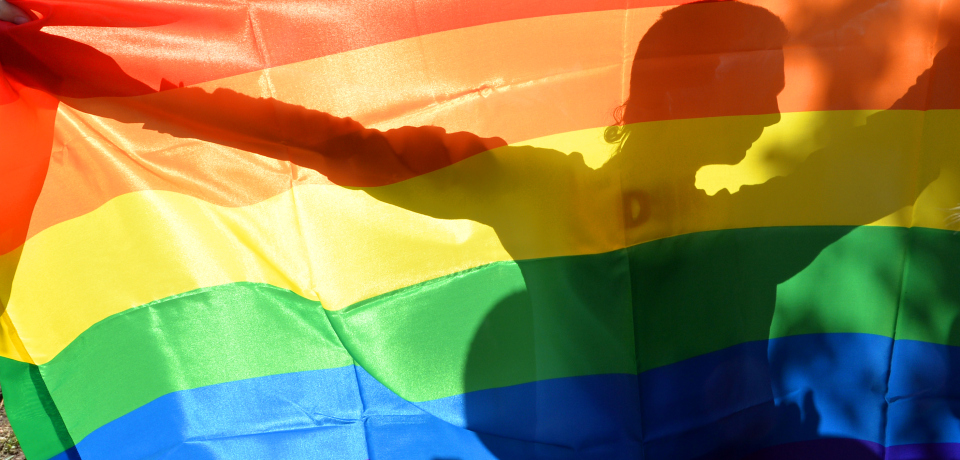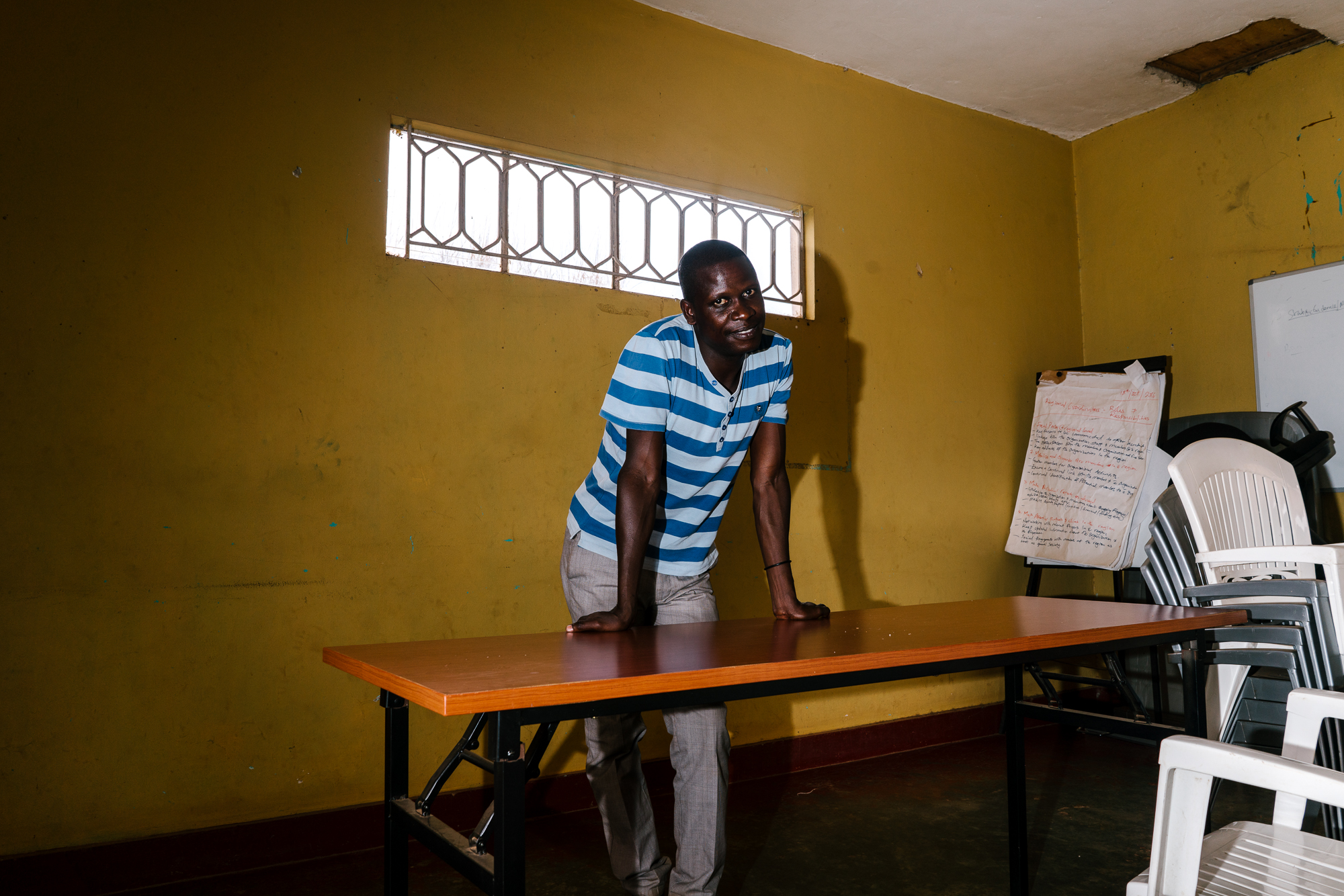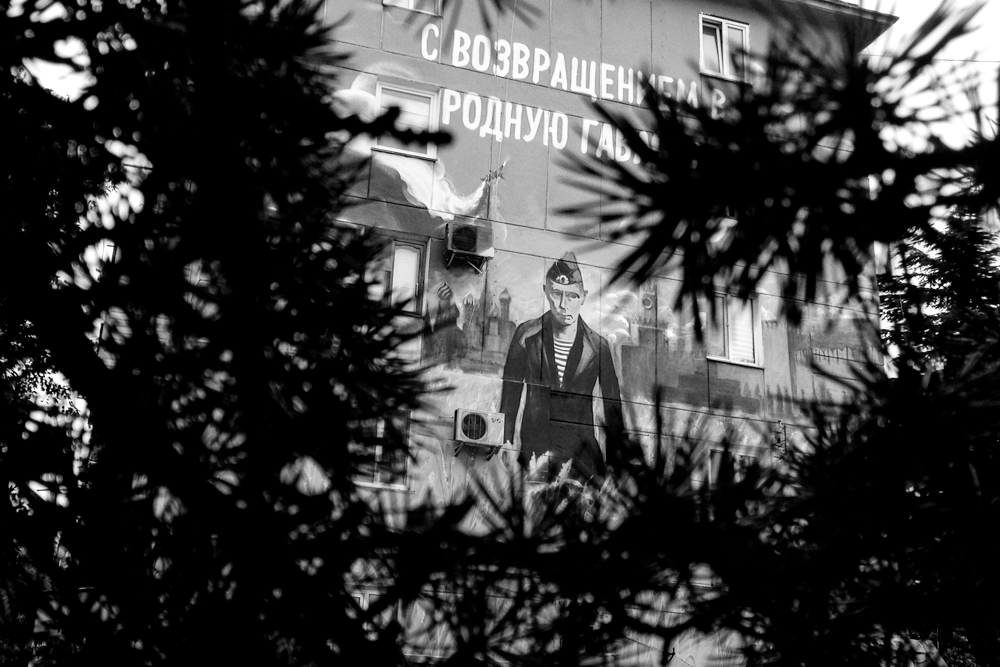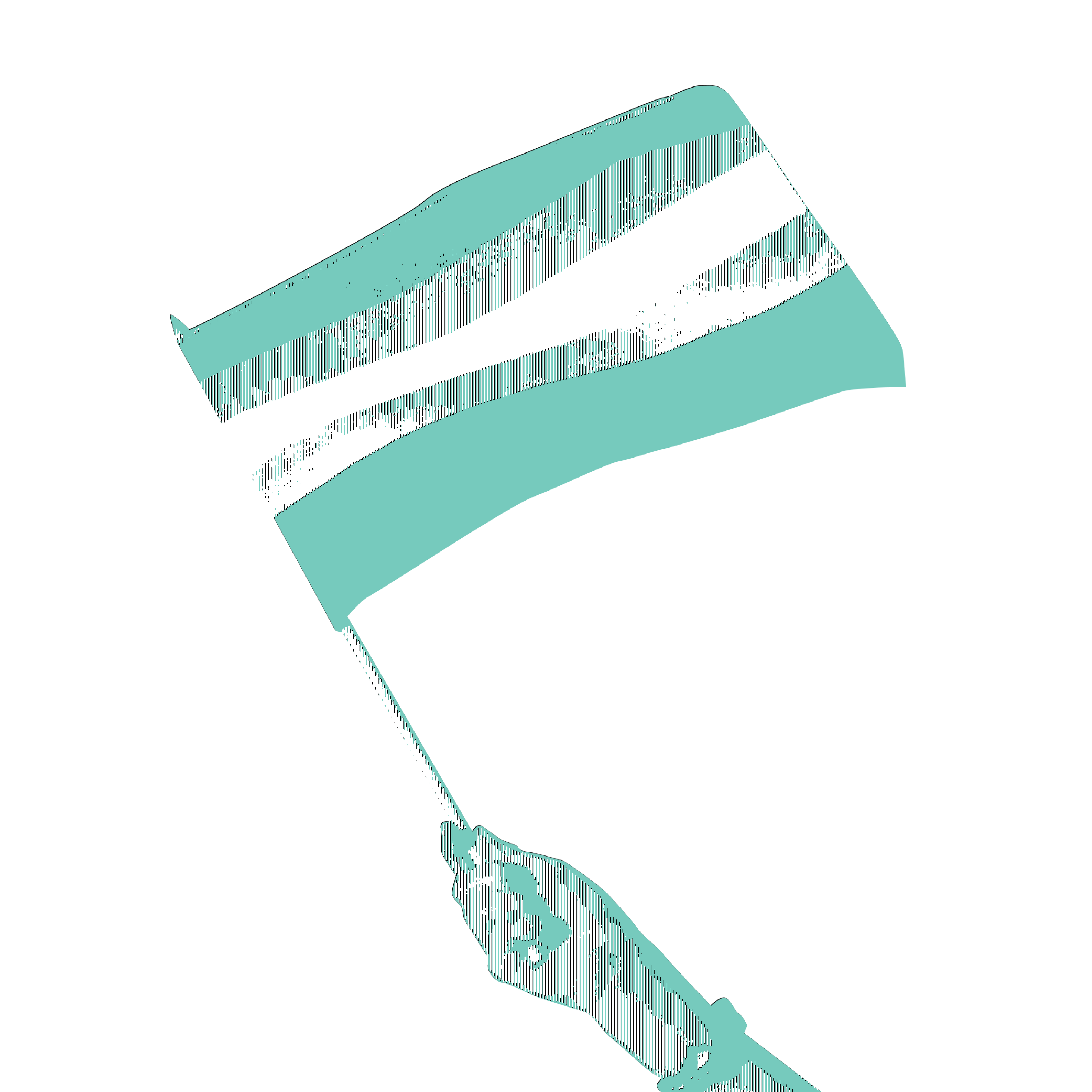
KIEV, Ukraine — It was a quiet evening in late autumn, perfect for going to the movies. Kiev's Zhovten (October) theater, the oldest one in the city and a favorite with art-movie buffs, was showing a new French film called Les Nuits d'Été (Summer Nights), about a married man in 1950s France who leads a perfectly normal life — except that every weekend he goes to a cabin in the forest, where he dresses up as a woman. The screening was part of Ukraine's annual Molodist film festival, which included a selection of queer-themed features, and many in the audience — about a hundred people in all — belonged to Kiev's LGBT community.
Twenty minutes into the movie, just as the plot deepened, a loud noise, like exploding firecrackers, came from the back seats. Panic broke out, as people rushed toward the exits. By the time the fire engines finally arrived, flames had already engulfed the roof of the theater, and the Kiev sky was lit up by a wild blaze. The fire was eventually put out, but much of the cinema was destroyed. An incendiary smoke grenade was deemed the most likely cause; fortunately, there were no casualties.
The official investigation has yet to close, but two suspects were apprehended, reportedly confessing that they had aimed to disrupt the event and "express … contempt for LGBT people." Two days after the fire at Zhovten, about a dozen men in camouflage and the insignia of the ultranationalist group Right Sector tried to shut down another LGBT film screening, calling it "amoral." Asked at the recent Eurocities Conference how he would support human rights after the Zhovten homophobic attacks, Maidan's hero and current Kiev mayor Vitali Klitschko said he considered human rights a good thing, but would "not stand up for gays and lesbians."
It was not supposed to be that way in the new Ukraine.
The February revolution was aimed, first and foremost, at the ouster of the notoriously corrupt president Viktor Yanukovych and his criminal cabal. But there was also hope among many of the revolution's liberal supporters that Ukraine would choose a pro-Western European course, not just politically, but culturally as well — one that would include a space for the LGBT community. Life has changed radically in Ukraine over the past year: Old attitudes toward politics, history, and national identity have altered beyond recognition and a new civic spirit has taken root among many, revitalizing Ukraine. But conservative attitudes toward people of different sexual orientation have doggedly persevered — and in some cases even worsened.
"We hoped that the protests at Maidan would eventually help to improve the situation with human rights and the rights of minorities in Ukraine," says Olena Shevchenko, the director of the Ukrainian LGBT organization Insight, and a leader of a female-only volunteer military unit known as the "Maidan Amazons" during the February revolution. "Today many in Ukraine claim they reject Russia's ways and endorse European liberal values, a better life, and greater freedom. But LGBT rights continue to be seen as 'a perversion.'"
"You can't have your cake and eat it too," she added.
The annexation of Crimea in March of 2014 and the ongoing armed engagement with pro-Russian forces in the east of the country have pushed a large swath of Ukrainians to reject Moscow and its overbearing influence. At the same time, the ensuing daily chaos and uncertainty, as well as the rising levels of nationalism and militarization in Ukraine, have drawn many to the emotional safety of the traditional family and religious values of the Orthodox Church — an institution that has been often guilty of bigotry and open hostility to sexual difference. Old Ukrainian folk narratives, where men are supposed to be warriors while women play nurturers, have experienced a revival. Ironically, incipient Ukrainian nationalism has closely mirrored its Russian counterpart, along with the emphasis on cultural orthodoxy and prescribed gender roles. As a result, vulnerable groups, like the LGBT community, have been caught in the middle.
"I believe we are in between two evils: Russian homophobic culture and Ukrainian homophobic intolerance," says Olena Semenova, an LGBT activist.
The Ukrainian gay and lesbian community is large and vibrant, especially in Kiev, where gay clubs and bars operate in relative peace. But many of its members prefer to remain closeted. Homophobia in Ukraine is pervasive and deep-rooted, sharing many parallels with Russia's. Homosexuality was illegal in the Soviet Union and was often equated with "counterrevolutionary" positions and even fascism — a convenient way to deal with the regime's enemies. Although it was decriminalized after Ukraine became independent in 1991, negative social attitudes persist to this day. According to a 2013 poll conducted by GfK Group, almost 80 percent of Ukrainians say they oppose any sexual relations between people of the same sex. In another poll, by the Ukrainian Gay Alliance and Ukrainian State Sociological Institute, 63 percent labeled homosexuality "a perversion" and "a mental disease." That same year, a survey within the LGBT community carried out by Nash Mir Center found that 65 percent of respondents faced infringements of their rights due to sexual discrimination. The list included verbal abuse, intimidation, and loss of employment or direct physical violence. Few of these cases (about 15 percent) ever get reported to the police authorities because of the victims' fear of further reprisal and humiliation. There have been other cases of arson, too, long before the one at the Zhovten theater: In 2009, the Kiev art gallery Ya was set on fire after the presentation of a gay literary anthology.
For years, the Ukrainian state has passively stood by and sometimes even encouraged homophobia. In 2012, a few members of parliament proposed a bill to "prohibit promotion of homosexuality," fashioned after the notorious Russian laws against "gay propaganda," but under pressure from human rights organizations and foreign diplomats, the bill never made it past the first reading and has now been permanently shelved. Ukrainian laws also make no explicit provision for protecting from discrimination on grounds of sexual orientation. In fact, even the post-revolutionary Ukrainian government has actively fought off the EU's urging to introduce any such legal language, since officially raising the issue of LGBT rights in Ukraine is seen as a huge political liability in today's highly charged political climate. Much of Russia's anti-Western propaganda focuses on Europe's tolerance of "sexual perversions" and "moral decadence" — Gayropa, as the pro-Kremlin media love to call Europe — and the Ukrainian authorities do not want to see any such rhetoric justified, which could help the separatists and alienate local conservative groups.
The issue of homosexuality is a loaded weapon in the war in Ukraine, perhaps just as dangerous as Kalashnikovs or artillery. Back in 2012, one Ukrainian member of parliament, Yuriy Syrotyuk, warned that protecting the rights of LGBT people would "blow up the country" and could lead to the secession of Crimea and Ukraine's conservative eastern provinces. Unlike in neighboring Poland, there are no openly gay politicians in Ukraine, though the party of current president Petro Poroshenko just recently put together a statement in support of LGBT rights. In the past year, there has been a relaxing of government rhetoric in relation to LGBT issues, as Ukraine tries to curry favor with EU institutions, but the new parliament has generally tried to avoid the issue.
"The government thinks that LGBT rights are a very explosive issue, which could play into the hands of the separatist cause," says Bogdan Globa, director of the Ukrainian LGBT advocacy organization Fulcrum. "At the same time, nationalist groups say they are for European integration, not because they profess European values, but because they are against Russia. They act on the principle that the enemy of my enemy is my friend."
Even before the Maidan had ended there were signs that gay rights would be a contentious issue in post-revolutionary Ukraine. Local LGBT organizations decided not to promote queer politics or to display any related symbols at the Maidan protests last winter in order to keep the peace with more conservative, nationalist groups, who fought against the Yanukovych regime side by side with liberals. When it came to issues like sexual orientation and gay rights and equality, the general rule was "Don't ask, don't tell."
Despite the precautions, a small flash mob with rainbow flags at Maidan in January 2014 threatened to break the apparent harmony. Official LGBT spokespersons immediately denounced the event as "fake" and a provocation organized by pro-Russian groups and possibly the Ukrainian Security Service (SBU) with the goal of breaking the unity of protestors and confirming the propaganda that presented Maidan as a product of European "degeneracy." Quite possibly, the flash mob was really a provocation — such tactics are not new in the handbook of the security services — but the paradox remains: LGBT groups took an active stand against a display of LGBT identity because of the understanding that talking about gay rights in Ukraine in the current political situation was a huge liability. Although one of the tacit goals of the revolution was to create a more just and equal society, many in Ukraine remain deeply prejudiced against gays and lesbians, even compared to conservative societies in places like Turkey, where the Gezi Park protests against the government of Recep Tayyip Erdogan in the summer of 2013 openly embraced LGBT groups.
"Few people in Ukraine understand the real meaning of human rights," says Insight's Shevchenko. "People understand equality as financial equality or equality of income, but rarely as equality for people with different sexual identity."
Those in power in Ukraine demonstrate similar disregard for LGBT rights and the implications for human rights in general. In the current state of emergency, there are of course many excuses: Other urgent issues need attention. The mayor of Kiev, Klitschko, made an appeal to cancel last year's March for Equality, for instance, citing security concerns, which were certainly real (the first March for Equality failed in 2012, when thousands of nationalists threatened violence and some gay activists were beaten; in 2013, a small group managed to march just 300 meters along a Kiev street guarded by over 1,000 security officers), but he also called the march "an entertainment event," fundamentally failing to understand its purpose in promoting human rights and better democratic standards.
"For the people who started the Maidan revolution, human rights were not a central concern. This topic was forgotten," says Svyatoslav Sheremet of the Ukrainian Gay Forum, who was brutally beaten by nationalist thugs during the failed march in 2012.
Meanwhile, LGBT refugees have been arriving in Kiev from Crimea and eastern Ukraine, running away from both war and rising levels of violent homophobia. In Crimea, for example, the new prime minister, Sergei Aksyonov, has said that they "do not need such people," while separatist governments in eastern Ukraine have reportedly criminalized homosexuality using Soviet legal templates. But whether Kiev could offer a much friendlier environment is still under question. Post-Maidan Ukraine is still a place where law and order remain deeply problematic, the security services are ineffective, and aggression and military machismo have become part of daily life — not the sort of atmosphere in which gay and lesbian Ukrainians can feel a part of their new, remodeled country.
"There are some people who just want to join 'Europe' without changing their values and without understanding what it all means," says Vlad, a 19-year-old veterinary student and refugee from Donetsk currently living in a small LGBT shelter in Kiev run by the organization Insight. "But if people really want to change our country, the change has to start within them and their relationship to others."

Education Resource
Meet the Journalist: Jake Naughton
Photographer Jake Naughton talks about reporting on Uganda's LGBT community in the years following...








